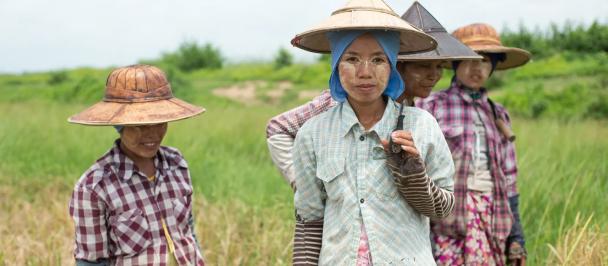Three innovative ways UNDP is helping farmers in Myanmar’s Shan State
August 23, 2023
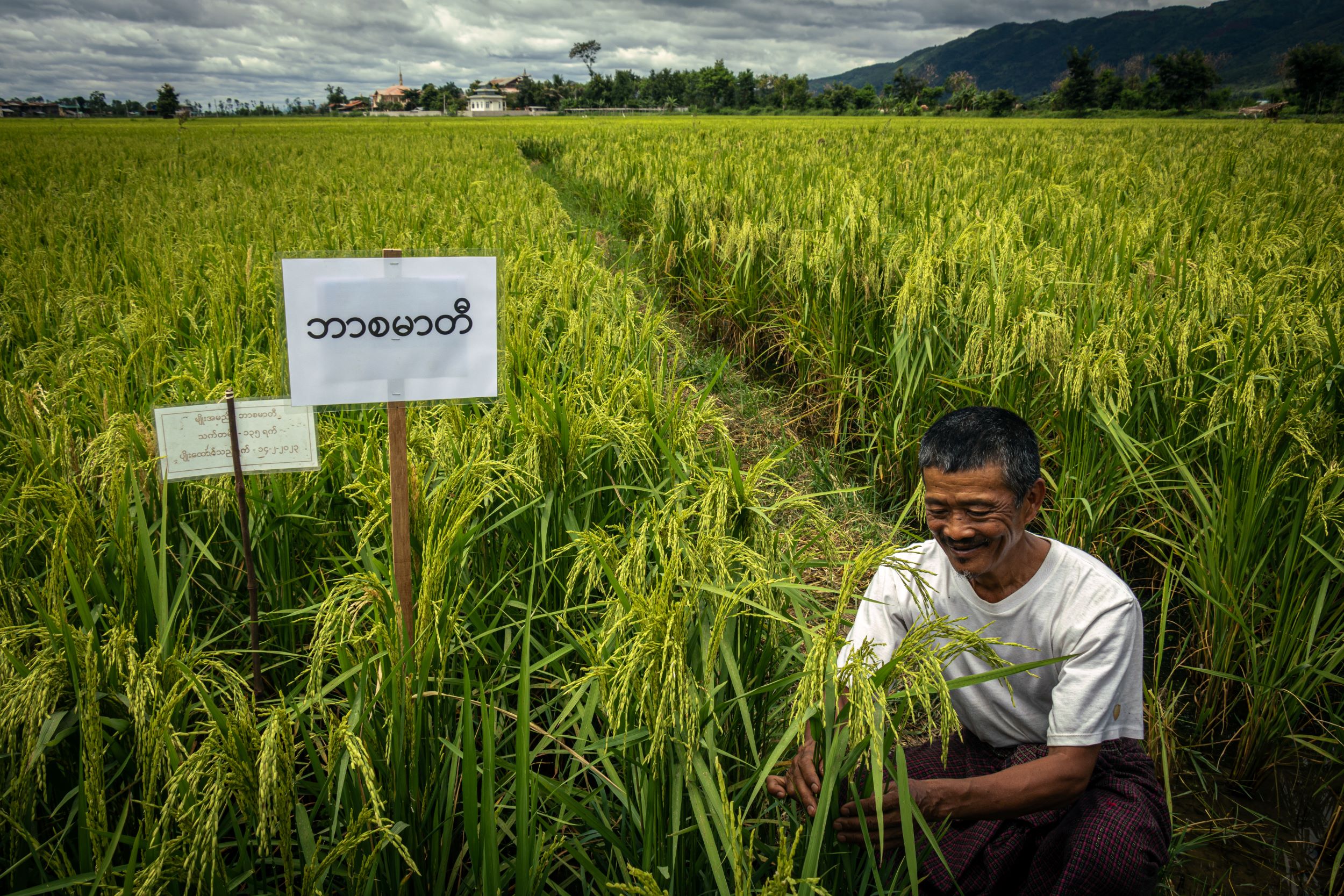
U Win Myint inspects his rice paddy field
Agriculture provides work for thousands of people across Shan State, a livelihood that produces food consumed throughout Myanmar and drives substantial earnings through exports.
It is, however, possible to enhance agricultural productivity by implementing better farming methods, choosing appropriate crops, and reducing the use of chemical fertilizers and pesticides, which contribute to environmental degradation.
Since the military takeover in February 2021, economic instability in Myanmar has further exacerbated farmers' challenges. Seed and fertilizer prices have risen, access to markets and supply chains has been disrupted, and available credit is limited, which is vital for many farmers who lack the money to pay for critical agricultural inputs between sowing the crops and selling the harvest.
UNDP is providing wide-ranging support to farmers in southern Shan State, including harnessing affordable, climate change-resilient technological solutions to increase the productivity of their land. To ensure success, new ideas are piloted with farmers. Here are three of UNDP’s latest initiatives.
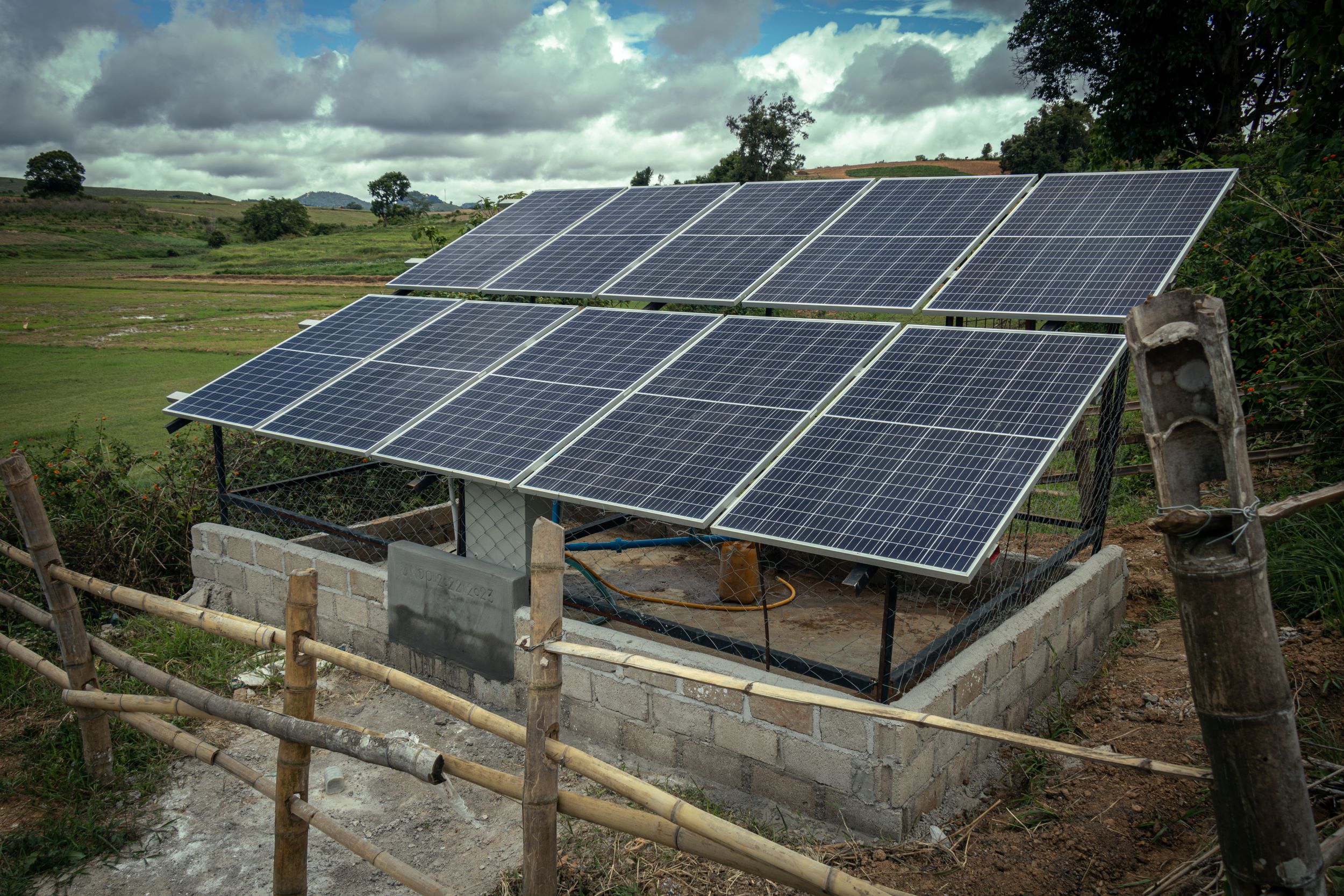
A solar-powered water pump in Myanmar's Shan State
Irrigating crops with solar pumps
Myanmar’s annual monsoon provides sufficient rain for farmers to grow groundnuts and ginger. However, other crops, such as rice paddy, garlic, tomatoes, and chilli peppers, require additional irrigation.
Farmers in one village rely on diesel-powered pumps to extract water from a local creek to access this water. With fuel prices rising, this is a costly endeavour.
"I had to cut down on fertilizer expenses to compensate for the high fuel costs. As a result, vegetable yields on my farm suffered. Additionally, the diesel engine pumps used by all farmers in the village during the harvesting season caused noise and air pollution," said U Bhone.
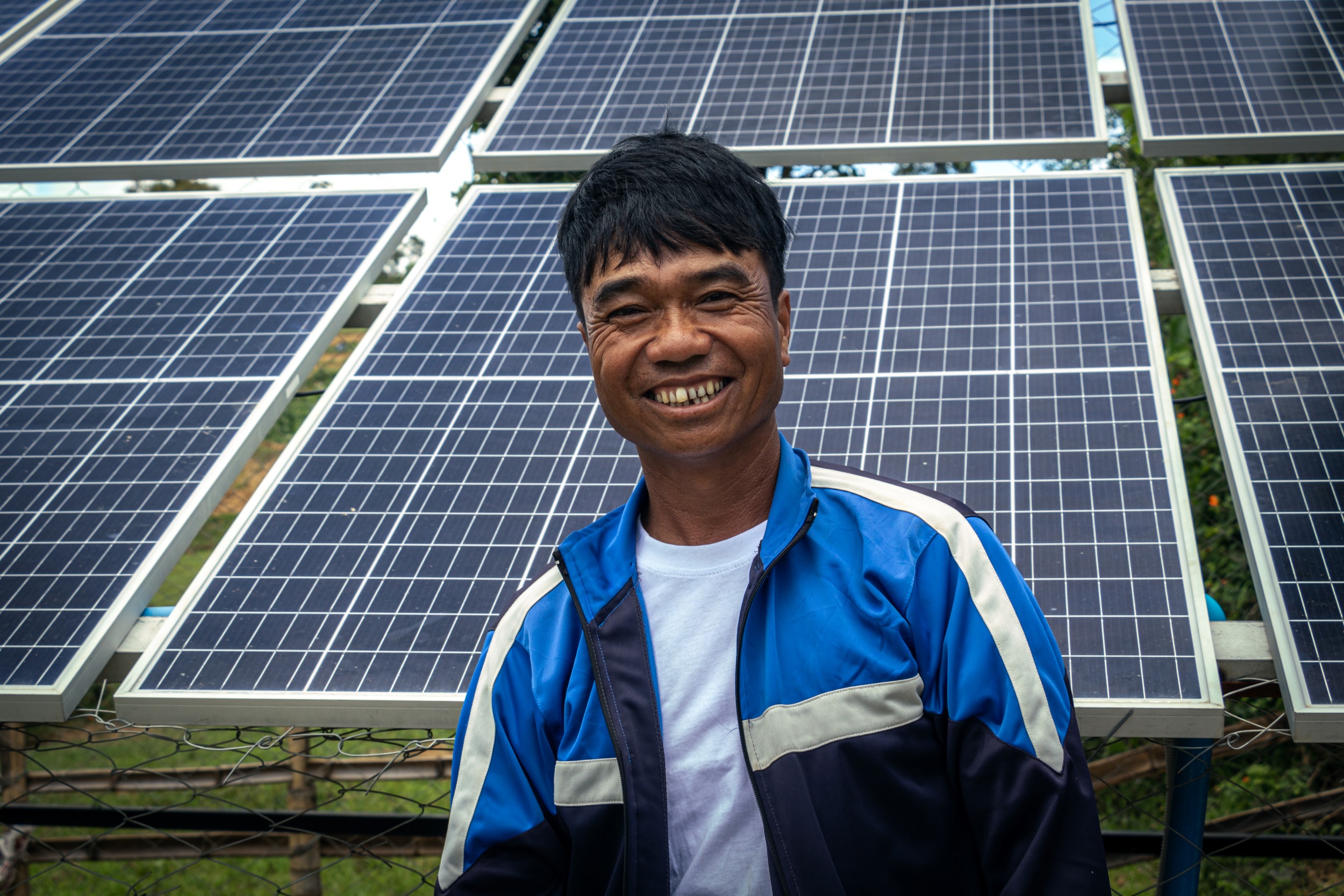
U Bhone stands in front of the solar-powered water pump in his village in Shan State
To overcome these issues and facilitate a sustainable way to irrigate crops, UNDP provided a solar pumping system to support farmers' production needs, alleviating concerns about fuel costs.
"To ensure the system's maintenance, the group of farmers using the solar pumping system contribute a small amount of money," U Bhone added.
"The success of this pilot project has sparked interest among other households in the village, who are now considering installing their own solar pumping systems."
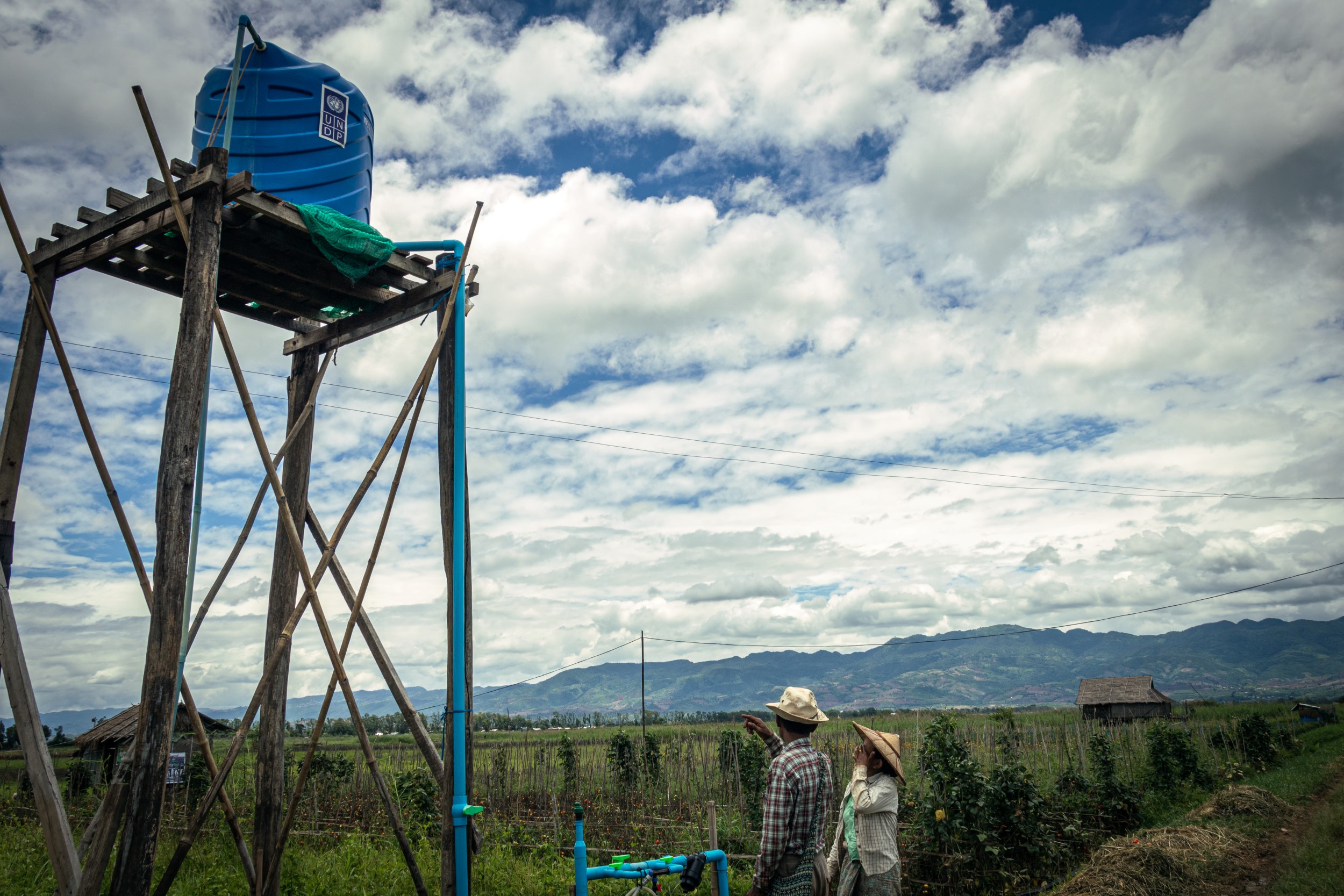
A fertigation system in Myanmar's Shan State
Fertilizer + irrigation = fertigation
Fertigation is the process by which fertilizer is dissolved in an irrigation system’s water and delivered directly to the plants’ roots. Although using the system requires training and close management, it improves the uptake of nutrients, saves farmers’ time, and increases crop yields.
As part of a pilot project, UNDP provided pipes, water tanks and technical support to establish the fertigation system in a southern Shan State village.
The process reduced the amount of fertilizer used from 25kg to 1.5kg. At a time when fertilizer costs have soared from between 15 and 40 percent, these savings are significant.
"Previously, my tomato farm had very low yields, and the cost of fertilizer was overwhelming. Additionally, my wife and I had to pay labor fees as we worked tirelessly to manage the farm. After selling the tomatoes at the market, there wasn't much money left for my family. I was barely breaking even," said U Kyaw Oo.
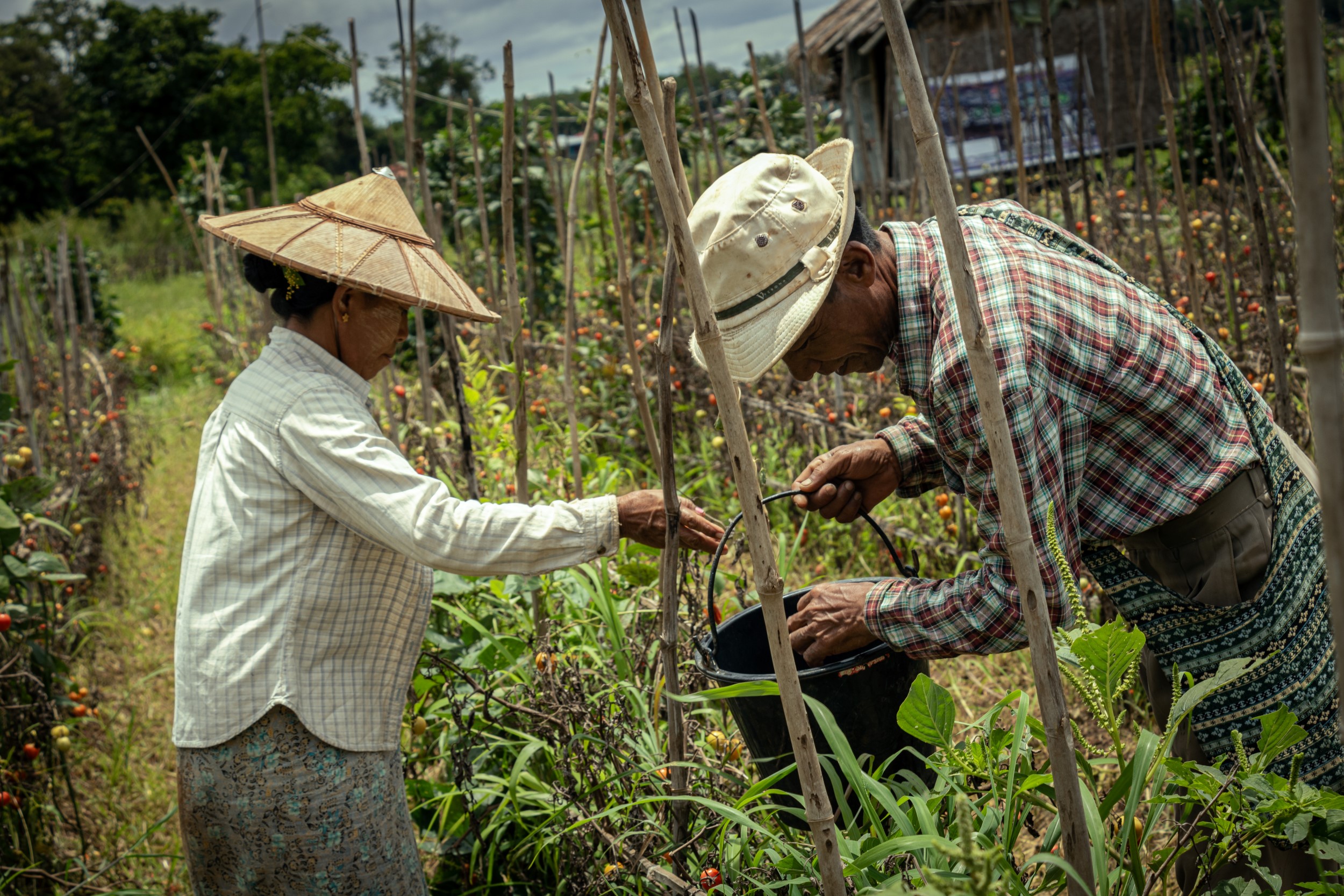
U Kyaw Oo and his wife pick tomatoes together from their farm
Now using a fertigation system, he is spending 10 percent of what he previously spent on fertilizer and his labor costs have fallen. The family income has grown 40 percent with these savings and increased harvests.
U Kyaw Oo is now expanding his fertigation use beyond tomatoes to other crops, including long beans, peanuts, and cucumbers.
Although fertigation requires some initial investment, he explained that with the increased productivity, he will recover his investment in as little as six months.
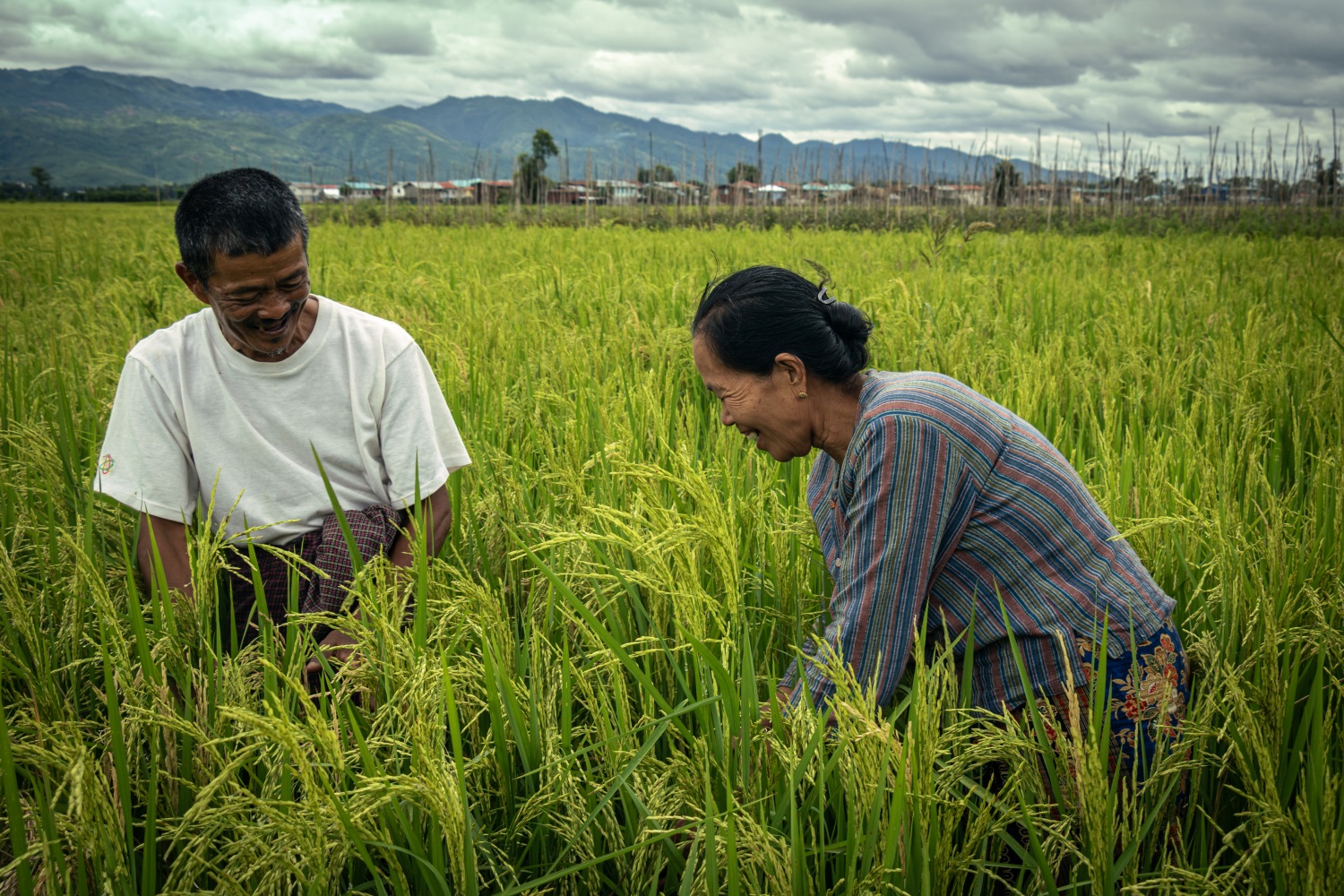
U Win Myint and his wife inspect their rice paddy crop together
Experimenting with different rice seeds
When it comes to growing rice, farmers in Shan State have limited options on the seeds they can use. They often rely on imported paddy used for one season and cannot be saved for future harvests.
To introduce farmers to new, more productive rice varieties, UNDP has set up a demonstration farm in a southern Shan State village. Here farmers are taught sustainable practices, such as reducing chemical inputs and replacing them with organic alternatives, and managing pests effectively.
By experimenting with different rice varieties, farmer U Win Myint discovered that basmati was best for his farm. It is a better-quality grain with higher market demand and price due to its popularity.
"Unlike [the imported seeds], which are expensive and cannot be preserved for future use, basmati seeds can be stored and used for multiple years, providing long-term benefits," U Win Myint said, adding how he is even able to share surplus rice with his neighbours so they can grow it too.
UNDP has also helped renovate a canal to ensure plentiful water is available for irrigation in the village. Now dry land around the canal can also be farmed, and the project provided temporary work and income for around 80 residents. With more water available, farmers can start growing paddy earlier.
These activities are delivered through UNDP’s Enabling Community Recovery and Resilience (ENCORE) project. The pilots are showcasing technical options available to farmers in Shan State who can embrace and replicate new these innovative farming techniques, while UNDP continues to provide technical support.

 Locations
Locations